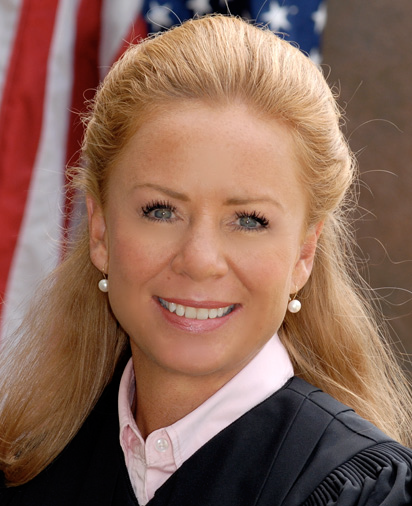High Court Wrongly Rejects Recusal
Dumps proposal by 54 retired judges, assures big money influence.
It was a hack job at the High Court of Wisconsin on April 20.
The Wisconsin Supreme Court took up and the dismissed the petition by 54 retired judges who had urged the justices to tighten up their recusal rule—the rule that spells out when judges must get off a case because of concerns over conflicts of interest. (The Wisconsin Democracy Campaign supported that petition with a public comment.)
The current rule, which they adopted in 2010, was taken verbatim from a petition from Wisconsin Manufacturers and Commerce and the Wisconsin Realtors Association. It says campaign contributions to a candidate for the bench, or independent expenditures on behalf of that candidate, cannot be the sole reason for recusal. And it left the decision on recusal up to the actual judge who may have the conflict of interest.
Keeping true to form, the conservatives on the Wisconsin Supreme Court continued in lock step, blind to the damage that big money does to their reputations, indifferent to the overwhelming public comment in favor of tightening the recusal rules, and specious in their arguments about what the Constitution requires.
Justice Ann Walsh Bradley, the other liberal, agreed: “The issue is so important that to shut it down without a hearing undermines the public confidence that is so important for this Court. At least give people a chance to be heard. What is so threatening about that? I think a public hearing is absolutely essential in this case.”
But shut it down they did, by a vote of 5-2.
Then the two liberal justices made a motion that the Court should accept the petition from the 54 judges. Justice Annette Ziegler made a separate motion to reject the petition. She said the petition “just does not comport with the Constitution.”
Justice Rebecca Bradley chimed in that it would violate her oath of office to uphold the Constitution because “the petition infringes the First Amendment rights of Wisconsinites who wish to participate in judicial elections. The people have a First Amendment right to speak out on issues.” She also said that “this petition rests on a presumption that’s false—that Wisconsin judges are incapable of deciding for themselves when they should recuse themselves. Every judge in Wisconsin should be offended by this. It attacks their integrity and character.”
Abrahamson responded on the constitutional issue, citing case after case of U.S. Supreme Court precedent requiring recusal in certain circumstances, including in instances of campaign donations to judges. “These cases all state that due process requires recusal if there is an actual conflict of interest or the appearance of a conflict of interest,” Abrahamson noted.
The most recent case she cited was Rippo v. Baker, which was decided this year. She quoted the U.S. Supreme Court in that case: “Under our precedents, the Due Process Clause may sometimes demand recusal even when a judge ‘has no actual bias.’ Recusal is required when, objectively speaking, “the probability of actual bias on the part of the judge or decisionmaker is too high to be constitutionally tolerable.”
Abrahamson also referred to the 2009 Caperton v. Massey Coal case, in which the Court ruled: “The appearance of bias demeans the reputation and integrity of not just one jurist, but of the larger institution of which he or she is a part. … Both the appearance and reality of impartial justice are necessary to the public legitimacy of judicial pronouncements and thus to the rule of law itself.”
In none of these cases did the U.S. Supreme Court say that recusal rules infringe on anyone’s First Amendment rights, though that’s what the conservative majority on the Wisconsin Supreme Court insisted upon.
The conservative majority also insisted that the final word on recusal should be left up to each individual judge. “That’s just not what the U.S. Supreme Court has been saying” Abrahamson pointed out. “They say there is a due process right not only to fair adjudication but the perception and appearance of fair adjudication.” She added that the “logical conclusion” of this line of argument is that “you don’t need any code of judicial conduct. I find that not persuasive.”
Ann Walsh Bradley noted that under the current recusal rules, “Judges’ campaign committees can actively solicit litigants with cases before them.” A couple of conservative justices asked her to name an instance of this. “The very idea causes you to be aghast,” she said.
Seemingly frustrated by the action of the Court, Ann Walsh Bradley said: “A fundamental tenet of our democracy is that judges must be perceived beyond price.”
But with today’s decision, judges in Wisconsin will continue to be perceived to have a price tag hanging from their robes. The conservative majority, again by a vote of 5-2, dismissed the petition of the 54 retired judges.
A few of those judges were in the audience when the justices were considering their petition.
“I’m surprised they wouldn’t even talk about why they wouldn’t hold a public hearing on this,” said Retired Judge William Foust.
“I just feel sad,” said Retired Judge Sarah O’Brien. “The people believe that large campaign contributions can influence judges, but the justices refuse to acknowledge that. It’s what we expected, but it’s no less heartbreaking.”
Matthew Rothschild is executive director of the Wisconsin Democracy Campaign.
Op-Ed
-
Wisconsin Candidates Decry Money in Politics, Plan to Raise Tons of It
 Dec 15th, 2025 by Ruth Conniff
Dec 15th, 2025 by Ruth Conniff
-
Trump Left Contraceptives to Rot; Women Pay the Price
 Dec 8th, 2025 by Dr. Shefaali Sharma
Dec 8th, 2025 by Dr. Shefaali Sharma
-
Why the Common Council’s Amended Budget is Good Policy for Milwaukee
 Nov 20th, 2025 by Alds. Marina Dimitrijevic and Russell W. Stamper, II
Nov 20th, 2025 by Alds. Marina Dimitrijevic and Russell W. Stamper, II






















